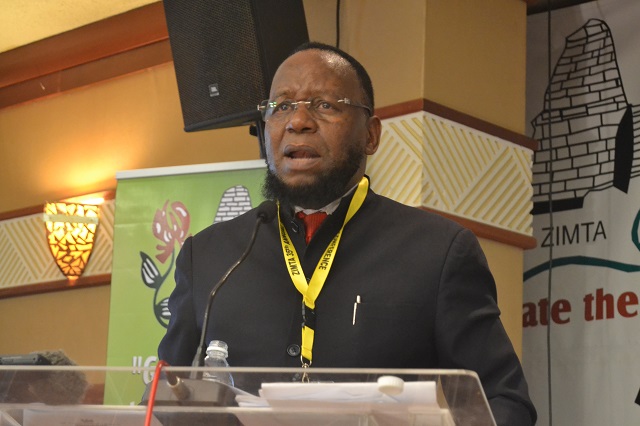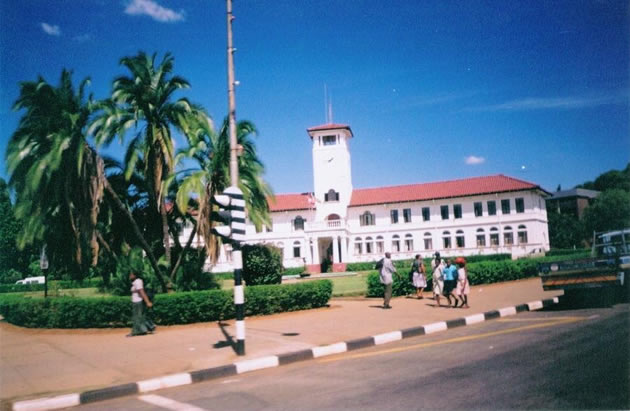The new curriculum: A pupil’s point of view

Haniel Nyauta, Opinion
THE new Zimsec curriculum has raised many questions and concerns especially among teachers and parents concerning its feasibility with respect to the financial implications of acquiring the resources necessary for its implementation.
Although these concerns are genuine, little has been done to address the anxieties of the pupils themselves.
Minister of Primary and Secondary Education Dr Lazarus Dokora says the new curriculum seeks to empower graduates of the education system with critical thinking skills, problem solving abilities, leadership skills, good communication skills, team building and technological skills.
All this sounds noble and worth investing in but the question remains; is the new curriculum able to efficiently provide these skills?
At infant level, the new curriculum introduces children to Mathematics and Science, Social Studies, Physical Education along with the Visual and
Performing Arts (Expressive Arts) with indigenous languages as a medium of instruction.
The new curriculum is expected to help infants learn to use their creative and technical skills simultaneously as this is necessary for healthy brain development in the child.
The approach helps parents and teachers identify the strengths and weaknesses of the child.
It is crucial for us to be vigilant and conscious of the education infants are exposed to because childhood is the most critical stage of development.
That is when mind-sets and personalities are formed.
It is important that the system sows seeds of positivity that will help them survive in a global village.
All activities they indulge in should be used as miniature forms of leadership training and character development, so that we can preserve the next generation.
At Ordinary Level, Agriculture, Physical Education, Heritage Studies, General Science, Mathematics, English Language and Indigenous Languages, are now compulsory subjects with an option of adding three more subjects and a maximum of five extra subjects.
I strongly feel the new curriculum failed to put into consideration a number of factors.
The introduction of a new curriculum was to build leadership and critical thinking skills but I fail to see how subjects chosen as compulsory do that.
In as much as these subjects may be beneficial, I fail to see how they meet the objectives highlighted as the reason for changing the curriculum.
I know from experience that the majority of O-Level pupils are not sure of the vocation they want to pursue for the rest of their lives.
Forcing them to choose one and at most two is limiting their opportunities and forcing them to bear a great burden at an early age.
Pupils will either pursue subjects that sound most enticing and prestigious with little knowledge of what the subject entails and what will be required of them to excel.
They could also be compelled by the forces of mob psychology and choose to do what everyone else is doing which could be disastrous.
Unless adequate career guidance programmes are introduced, we will have a country full of graduates with degrees they do not want.
If we want to promote holistic learning, it should be done in such a manner that the pupil is exposed to a broader pool of subjects so they can choose a trade from an informed view point.
The substitution of History with Heritage Studies as a compulsory subject was ill-advised as the two could have been merged into one subject.
However, History itself could have been excluded as it teaches slave trade and other stories that instil ideas that blacks are inferior to whites. It exacerbates inferiority complexes and promotes colonial hangovers.
Instead, schools should be teaching authentic African history, our culture and lifestyle not to be presented as primitive forms of living but rather to be appreciated and praised.
I understand that agriculture is a big part of the country’s economy and the lives of Zimbabweans in general but agricultural skills are not paramount in helping our children survive in a developing world.
We should invest more in making sure that children are financially literate.
It would be an invaluable tool for them to know about the power of investment and how to be a successful entrepreneur.
The reason why such subjects are made compulsory is that very few children would choose them out of their own will because most do not view them as essential to their lives.
I applaud the work being done at infant schools but I fail to find the link between the subjects that are being introduced at O-Level with the goals and aims that we hope to achieve.
I am still wondering if making Physical Education compulsory is the best stance to take if we want to build leaders, critical thinkers and problem solvers.
Instead, we limit the opportunities for pupils.
Haniel Nyauta recently completed his Ordinary Level and is set to begin Advanced Level following the release of examination results by Zimsec recently.










Comments